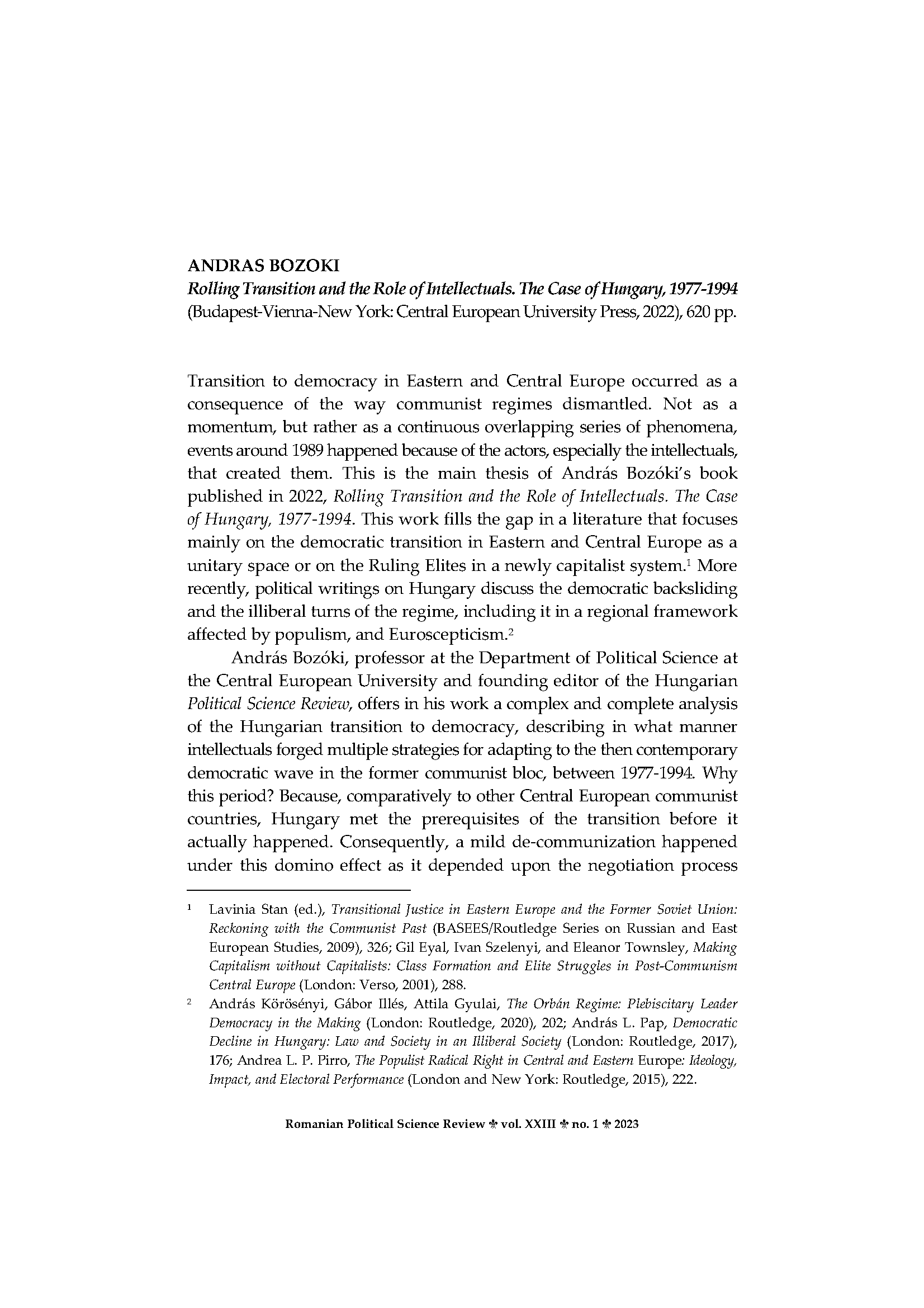ANDRAS BOZOKI Rolling Transition and the Role of Intellectuals. The Case of Hungary, 1977-1994
Budapest-Vienna-New York: Central European University Press, 2022, 620 pp.
DOI:
https://doi.org/10.62229/sprps23-1/7Abstract
Transition to democracy in Eastern and Central Europe occurred as a consequence of the way communist regimes dismantled. Not as a momentum, but rather as a continuous overlapping series of phenomena, events around 1989 happened because of the actors, especially the intellectuals, that created them. This is the main thesis of András Bozóki’s book published in 2022, Rolling Transition and the Role of Intellectuals. The Case of Hungary, 1977-1994. This work fills the gap in a literature that focuses mainly on the democratic transition in Eastern and Central Europe as a
unitary space or on the Ruling Elites in a newly capitalist system. More recently, political writings on Hungary discuss the democratic backsliding and the illiberal turns of the regime, including it in a regional framework affected by populism, and Euroscepticism.




